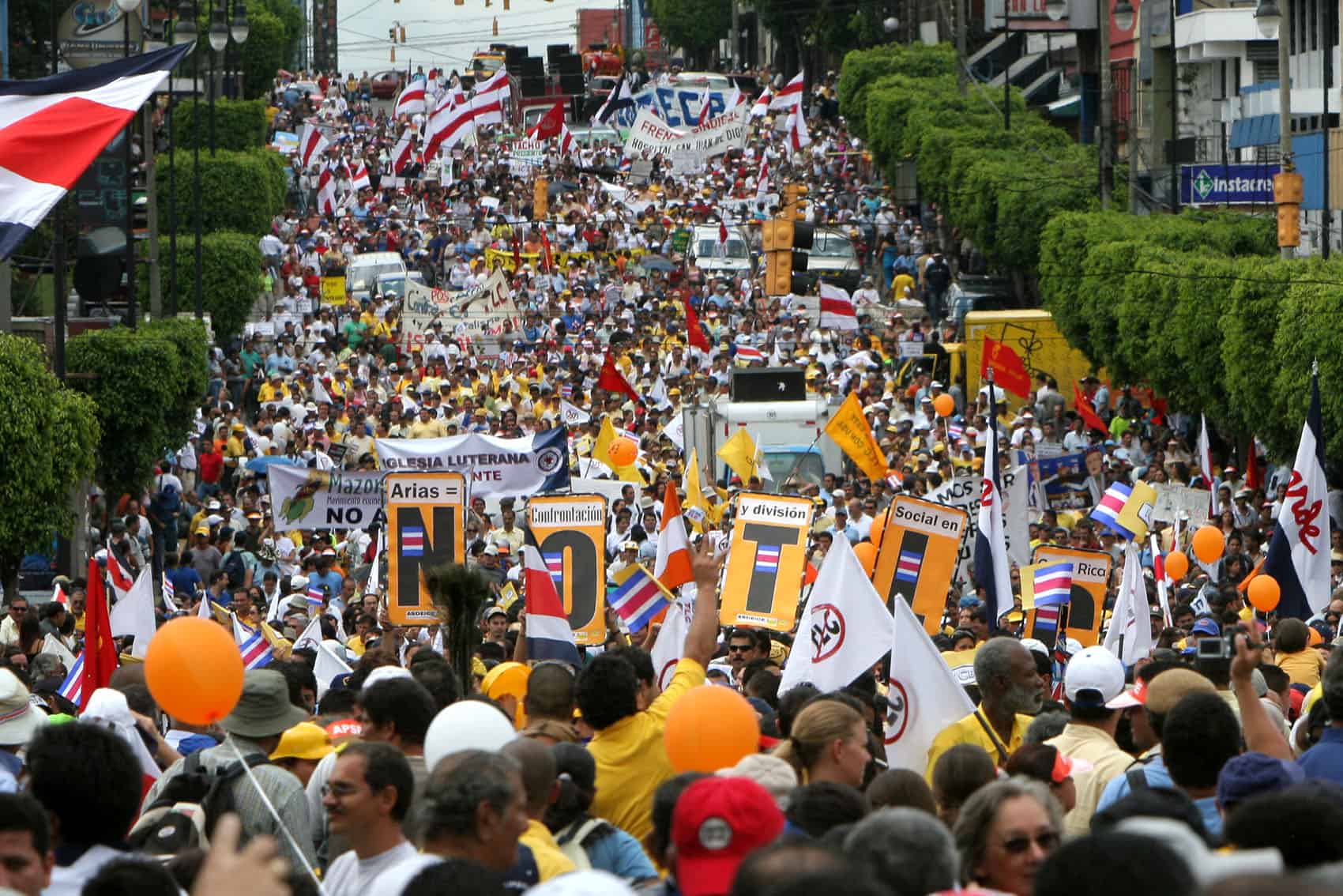The Trans-Pacific Partnership being negotiated between the United States and 11 other Pacific Rim nations has been characterized as the most progressive trade agreement in our history, with the strongest labor and environment provisions ever.
But what is the benchmark? To date, the United States has never had a trade agreement that protects basic rights and raises wages and living standards for working people. Previous agreements have failed to ensure the integrity of the democratic process and preserve consumer and environmental protections. Comparing this pact to previous agreements sets a pretty low bar.
While there have been some small improvements to the labor chapters of trade agreements over the years, the enforcement record has been mediocre.
In April 2008, the AFL-CIO, together with several Guatemalan labor unions, filed a petition under the Central America Free Trade Agreement. This is the first step in initiating a complaint when there has been a violation of the labor commitments in a trade agreement. The petition alleged that the Guatemalan government failed to enforce its own labor laws — tolerating repression of union activity and blacklisting, as well as violence and intimidation, including the assassination of two union officers.
Seven years later, a dispute settlement panel has yet to hear the case — and workers continue to wait for justice.
In March 2012, the AFL-CIO and more than 20 Honduran labor organizations alleged that Honduras, too, was failing to enforce its labor laws. This petition detailed egregious violations affecting hundreds of workers. Not only did the Honduran government fail to protect workers from beatings and assassination, but its own police and soldiers were implicated in a number of cases. Despite the egregious and repeated violations, the Obama administration took almost three years to even publish a report. Workers wait for justice.
In April 2010, the U.S. and Colombian governments, with an eye toward speeding ratification of the long-stalled U.S.-Colombia trade deal, announced a “labor action plan,” which was intended to bring Colombia into compliance with internationally recognized labor rights. Since the plan’s announcement, 105 Colombian trade unionists have been assassinated. Clearly, the new standard — reportedly similar to what’s included in the TPP — is insufficient to the monumental task of creating a fair playing field for U.S. and Colombian workers. Workers wait for justice.
The labor movement has fought for more than 20 years to include enforceable labor provisions in trade deals. Workers in the United States — and in our trading partners — have an economic interest in ensuring that basic rights are respected. If employers can violate the right to unionize with impunity, they can easily bring down wages, for all workers, globally.
That’s why the AFL-CIO, working with union federations from the other TPP countries, has offered suggestions to our government over the past five years to improve the labor chapter — and address the failures of prior trade deals.
Our recommendations include, among other things, the right to bring a labor claim based on a single egregious violation (such as a mass firing or violent attack), clear rules and deadlines that would require timely action on meritorious cases, protections for migrant workers, a ban on goods produced with forced or child labor, an independent secretariat to study and review labor practices and new standards related to labor inspections and decent work.
We don’t know yet whether any of our proposals made it into the TPP, since the text has not been made public. But the administration has given no public indication that our suggestions have been incorporated into its own negotiation text — let alone the negotiated draft. Until we hear something different, we remain unimpressed by the administration’s boasts about how strong and progressive the labor chapter is. We have heard those promises before.
Vietnam, Mexico, Brunei and Malaysia — all TPP countries — are notorious labor and human rights violators, currently out of compliance with the standards supposedly in the TPP. There is no known plan to withhold TPP benefits until these countries comply.
This raises serious doubts about whether the TPP will create a level playing field for workers. History shows we have one chance to get this right. That is why we oppose giving the Obama administration “fast-track” negotiating authority that would limit Congress’s ability to influence a final deal. The administration should release the TPP text and let the public judge for itself whether this deal will truly raise labor standards and conditions for workers when similar language included in past deals has been ineffective. Anything less is irresponsible.
– – – –
Trumka is president of the AFL-CIO.






